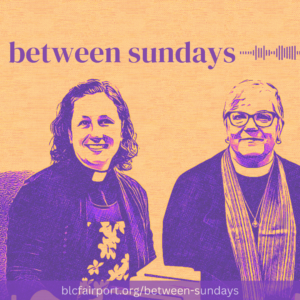Between Sundays for Week of July 8, 2024
O Lord God, you give us discomfort so that we will know when things are not in alignment. Let that discomfort spur us into holy action. Allow your Holy Spirit to create in us a sense of urgency we need to act. Give us the clarity to know when you call us to be disruptive for the sake of your kingdom and our neighbors. We pray this in the name of our Savior, who disrupted this world to save it, Jesus Christ, our Lord. Amen. (Prayer of the Day, July 7, 2024)
Created to be Disruptive . . . Disruptive action doesn’t come naturally to many of us who were raised to be nice and polite. As a result, the story of Jesus’ anger disrupting the activity at the Jerusalem temple is one that often makes us squirm. But at it’s heart, this passage, which all four gospel writers included, stands as a reminder that Jesus is not interested in business as usual. He’s not interested in protecting the status quo or our spiritual comfort. Jesus is continuing in a long line of truth speakers who came before him, who were continually reminding God’s faithful people that religious rituals that did not impact the way communal life was lived the other six days a week were empty of praise and would not please God.
What if Jesus’ display of anger in this story is intended to disrupt us and call us to self-examination of the ways that we have been content to allow our religious life to bring us a sense of comfort and security, instead of allowing it to re-form us ever more into the image of God in which we are created. And what if Jesus’ anger is intended to disrupt us in hopes that we might pay attention to the systemic injustices that fill our world and feel rage and be moved to work for reconciliation and justice on behalf of our siblings.
For those of us who struggle to think of ourselves as disruptors, Sarah Bessey gives a new perspective. She writes:
“I have often been more of a peacekeeper than a peacemaker. I’ve made the mistake of confusing calmness or the absence of active conflict for peace, of believing disruption is not peaceful behavior, of thinking that if people were just nice and more polite maybe the powerful would stop being so terrible. I’ve acted like avoiding things until they go away was the same thing as being peaceful.
“I’ll save you some trouble: this is not peacemaking. This is peacekeeping, which is a stalemate of mediocrity, a status quo maintainer, and sometimes even cooperation with oppression. . . . Peacemaking, on the other hand, brings peace to us, not simply by the absence of conflict, but by reconciliation and the active embodiment of shalom” (Sarah Bessey, Field Notes for the Wilderness: Practices for Evolving Faith, p. 180).
Following Jesus calls us into a relationship of being re-formed in his image which impacts the way we live our life and influences the choices we make, the friends we keep, and the activities we engage, and yes, the good trouble and disruptions we embrace for the sake of the gospel!
P.S. View Sunday’s worship service and hear Pastor Amy’s sermon about the ways we are called to be disrupted and disruptive. This is the fourth in our Created to Be sermon series on BLC’s YouTube Channel. Watch past services (Created to be Brave and Created to be Authentic and Created to be Free) on the Share in Worship page of BLC’s website!
Subscribe to “Between Sundays” on your favorite podcast app and help us spread the word through sharing!
Ponderings
There are ways to be disruptive beyond engaging in protest. One practice is to disrupt conversations with “interrupting phrases” that can be used when we hear something that makes us uncomfortable. Interrupting phrases include:
- That’s not OK with me.
- I didn’t realize you think that.
- I’m not comfortable with that.
- That’s not funny.
- We don’t say things like that here.
- I’m sorry, what?
- Hold on. I need to process what you said.
- I find that offensive.
- Help me understand what you are thinking.
- What you just said is harmful?
Can you think of a time when having one of these phrases in mind would have been helpful to disrupting a conversation? Practicing saying a phrase out loud a few times can help it stick the next time you want to disrupt an unjust situation or uncomfortable conversation.




